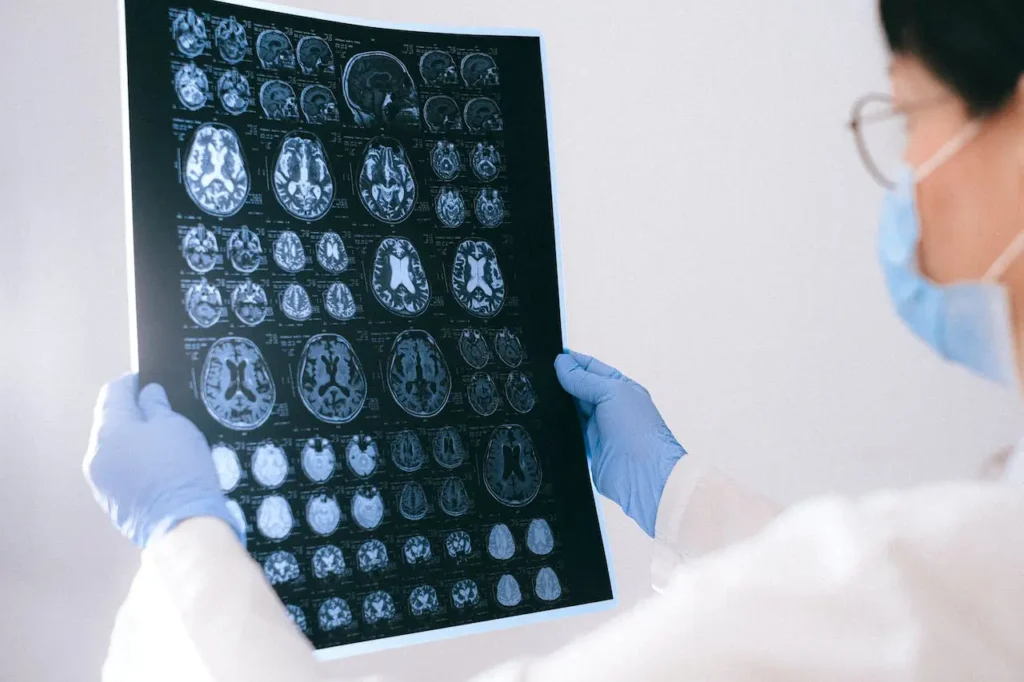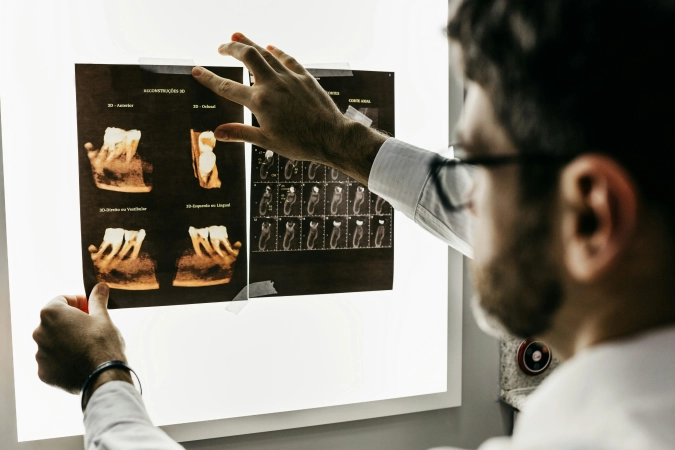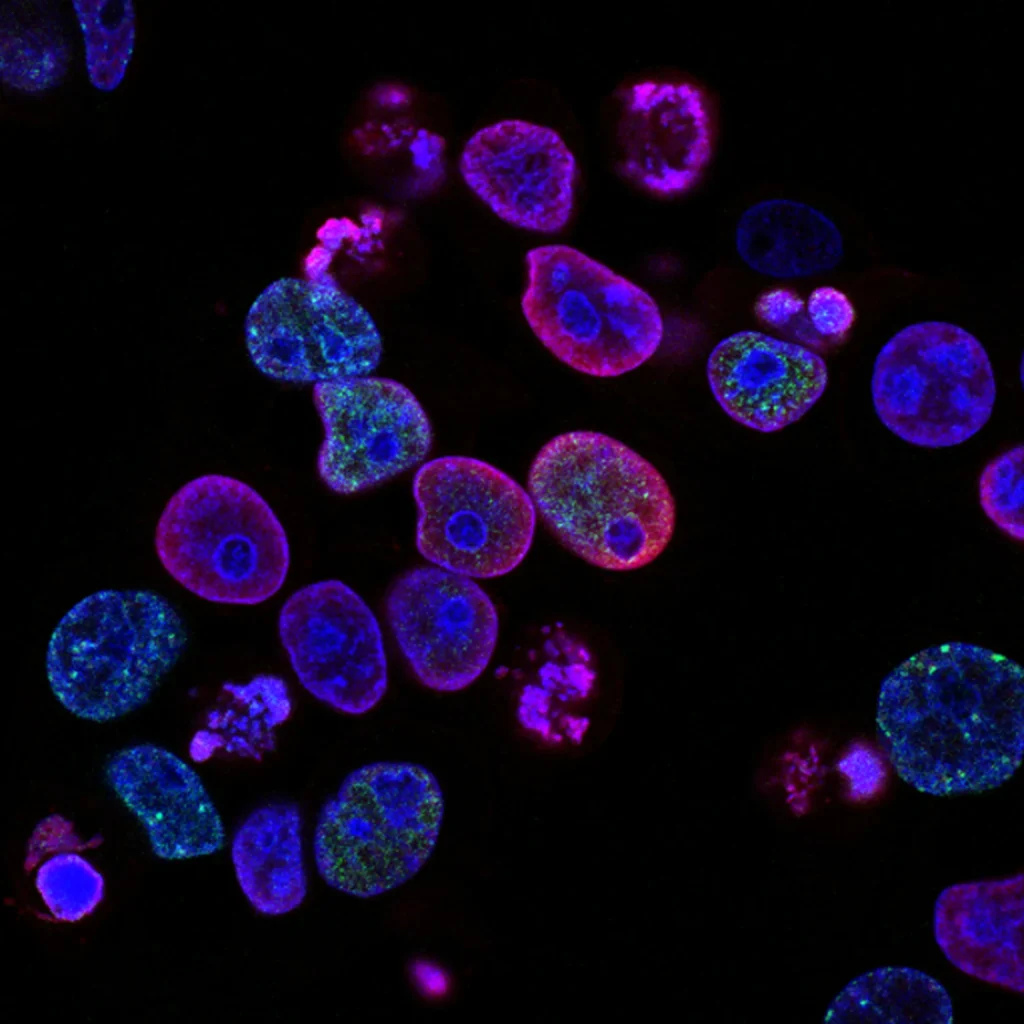Intracranial Pressure: Ultimate Guide for Caregiving

- Understanding Intracranial Pressure
- Increased Intracranial Pressure: Causes and Symptoms
- Intracranial Pressure Monitoring Techniques
- The Role of Caregivers in Managing Intracranial Pressure
- Caregiver Tips for Managing Increased Intracranial Pressure
- Adapting Living Spaces for Seniors with ICP Concerns
- Supporting Seniors During Intracranial Pressure Spikes
- Medication Management for Individuals with ICP Issues
- Lifestyle Changes for individuals with Elevated Intracranial Pressure
- Additional Resources for Caregiving and Intracranial Pressure Support
- Conclusion
- Frequently Asked Questions (FAQs)
Understanding Intracranial Pressure
This post may contain affiliate links, meaning I may earn a commission if you make a purchase, at no extra cost to you. I only recommend products I trust. Thank you for your support.
Intracranial pressure (ICP) refers to the pressure inside the skull and brain. It is a vital physiological parameter that helps maintain proper brain function.
The brain is enclosed within the skull and any increase in pressure can lead to serious consequences. Understanding intracranial pressure is crucial for caregivers providing support to individuals with this condition.

The brain is surrounded by cerebrospinal fluid (CSF), which acts as a cushion and helps regulate ICP. Normal intracranial pressure levels range from 5 to 15 millimeters of mercury (mmHg).
However, when there is a disruption in the balance between CSF production and absorption, intracranial pressure can increase.
Increased Intracranial Pressure: Causes and Symptoms
Increased ICP can be caused by various factors, including traumatic brain injury, brain tumors, infections, and hydrocephalus. It is important for caregivers to recognize the symptoms of elevated intracranial pressure to ensure timely intervention.

Some common symptoms of increased ICP include severe headaches, nausea and vomiting, changes in vision, drowsiness or difficulty waking up, and seizures. It is crucial for caregivers to closely monitor these symptoms and seek immediate medical attention if they worsen or become persistent.
Intracranial Pressure Monitoring Techniques
To effectively manage intracranial pressure, healthcare professionals utilize various monitoring techniques. These techniques help measure and assess the pressure inside the skull, enabling timely intervention and treatment.
One common method is the use of an intracranial pressure monitor, which is a catheter inserted into the brain tissue or ventricles. This monitor provides real-time readings of intracranial pressure and helps healthcare providers make informed decisions regarding treatment options.
Another technique used is transcranial Doppler ultrasound, which measures blood flow velocity in the brain. Changes in blood flow can indicate an increase in intracranial pressure and allow caregivers to take appropriate action.
The Role of Caregivers in Managing Intracranial Pressure
Caregivers play a crucial role in managing ICP and providing comfort and support to individuals with this condition. Their vigilance and understanding can greatly contribute to the well-being of the person under their care.
Below are some of the roles for caregivers caring for individuals with Intracranial Pressure (ICP)
- Education and Knowledge:
- Caregivers play a crucial role in managing Intracranial Pressure (ICP) by educating themselves about the condition and its management.
- This involves understanding the causes, symptoms, and monitoring techniques associated with elevated intracranial pressure.
- Knowledgeable caregivers can effectively advocate for the person they are caring for and communicate with healthcare professionals.
- Monitoring and Record-Keeping:
- Caregivers should closely monitor increased intracranial pressure symptoms.
- Keeping a detailed record of any observed changes or patterns is essential.
- This information becomes valuable for healthcare providers, aiding in accurate diagnosis and treatment planning.
- Safe Living Environment:
- Caregivers play a role in ensuring a safe and comfortable living environment for individuals with intracranial pressure concerns.
- This may involve adapting living spaces to reduce the risk of falls or accidents.
- Providing assistive devices as needed contributes to a safer daily environment.
- Vigilance and Understanding:
- The vigilance and understanding of caregivers are crucial for the overall well-being of individuals with elevated intracranial pressure.
- Recognizing early signs of distress and promptly addressing them is vital for effective care.
- Caregivers provide comfort and support through their attentive approach to the needs of the person under their care.
- Effective Communication:
- Caregivers should establish open and effective communication channels with healthcare professionals.
- This ensures that relevant information about the person’s condition is shared, facilitating collaborative care.
- Clear communication aids in creating a comprehensive care plan tailored to the individual’s needs.
- Emotional Support:
- Beyond physical care, caregivers offer crucial emotional support to individuals with intracranial pressure concerns.
- Providing a compassionate and understanding presence contributes significantly to the person’s overall well-being.
- Emotional support from caregivers plays a pivotal role in navigating the emotional challenges associated with health conditions.
- Coordination with Healthcare Team:
- Caregivers act as liaisons between the individual under their care and the healthcare team.
- Coordinating appointments, ensuring medication adherence, and conveying relevant information to healthcare professionals are integral responsibilities.
- This collaborative approach enhances the overall management of intracranial pressure-related conditions.
- Adaptation and Assistance:
- Caregivers may need to adapt their caregiving approach based on the specific challenges associated with intracranial pressure.
- Providing assistance with daily activities and understanding the unique needs of the individual enhances the caregiving experience.
- Flexibility and adaptability are key qualities for caregivers in managing the dynamic nature of intracranial pressure-related conditions.
Caregiver Tips for Managing Increased Intracranial Pressure
Managing increased ICP requires a comprehensive approach. Caregivers can implement various strategies to provide comfort and support to individuals with this condition.
Here are some tips to help caregivers navigate the challenges associated with elevated intracranial pressure:
- Encourage proper hydration: Adequate hydration helps maintain optimal cerebral perfusion and can help regulate ICP. Encourage the person to drink fluids regularly, unless contraindicated by their healthcare provider.
- Monitor and manage pain: Pain can exacerbate ICP symptoms. Work closely with healthcare professionals to develop a pain management plan that is safe and effective for the individual. This may involve the use of medications or alternative therapies.
- Promote relaxation and stress reduction: Stress and anxiety can contribute to increased intracranial pressure. Encourage activities that promote relaxation, such as deep breathing exercises, meditation, or listening to calming music.
- Ensure proper nutrition: A healthy diet can support overall brain health. Provide nutritious meals and snacks that are rich in antioxidants, omega-3 fatty acids, and vitamins. Consult with a healthcare professional or dietitian for personalized dietary recommendations.
- Maintain a consistent routine: Establishing a routine can help reduce stress and provide a sense of stability for individuals with intracranial pressure concerns. Consistency in daily activities, meals, and sleep patterns can contribute to overall well-being.
- Encourage physical activity: Regular exercise, within the individual’s capabilities, can help improve blood flow and reduce the risk of complications associated with increased intracranial pressure. Consult with healthcare professionals to determine appropriate exercise options.
- Promote good sleep hygiene: Adequate sleep is essential for brain health. Help create a sleep-friendly environment by ensuring a comfortable bed, minimizing noise and distractions, and establishing a relaxing bedtime routine.
By implementing these caregiver tips, individuals with increased ICP can experience improved comfort and well-being.
Adapting Living Spaces for Seniors with ICP Concerns
Adapting living spaces is an important aspect of caregiving for seniors with intracranial pressure concerns. Making modifications to the home environment can help reduce the risk of accidents and promote independence for the individual.
Here are some key considerations when adapting living spaces:
- Remove tripping hazards: Clear pathways of any obstacles such as loose rugs, clutter, or electrical cords. Use non-slip mats or rugs to prevent falls.
- Ensure proper lighting: Adequate lighting is essential to prevent accidents and falls. Install bright, energy-efficient lighting throughout the home, especially in hallways, staircases, and bathrooms. Consider motion sensor lights for added convenience.
- Install handrails and grab bars: Handrails and grab bars provide support and stability, particularly in areas prone to slips and falls, such as bathrooms and staircases. Install them securely and at appropriate heights.
- Consider assistive devices: Depending on the individual’s needs, assistive devices such as shower chairs, raised toilet seats, and mobility aids may be beneficial. Consult with healthcare professionals to determine the most suitable devices.
- Ensure easy access to essential items: Organize frequently used items within easy reach to minimize the need for reaching or bending. This can include kitchen utensils, toiletries, and medication.
By making these adaptations, caregivers can create a safe and supportive living environment for seniors with intracranial pressure concerns.
Supporting Seniors During Intracranial Pressure Spikes
ICP spikes can be challenging for both the individual and their caregiver. During these episodes, it is important for caregivers to provide immediate support and comfort.
Here are some ways to support seniors during intracranial pressure spikes:
- Stay calm and reassuring: During a spike in ICP, the individual may experience anxiety or distress. Remain calm and provide reassurance that you are there to support them. Speak in a soothing tone and offer words of comfort.
- Monitor symptoms closely: Pay close attention to any changes in symptoms during an intracranial pressure spike. Document the duration and intensity of symptoms, and report them to healthcare professionals promptly.
- Encourage relaxation techniques: Help the individual engage in relaxation techniques, such as deep breathing exercises or guided imagery, to promote a sense of calm and reduce anxiety.
- Assist with medication management: If the individual is on medication to manage intracranial pressure, ensure they take it as prescribed. Help with organizing medications, setting reminders, and communicating with healthcare professionals regarding any changes or concerns.
- Provide a supportive environment: Create a quiet and comfortable space for the individual to rest during a spike in intracranial pressure. Dim the lights, reduce noise, and provide a calm atmosphere to promote relaxation.
- Communicate with healthcare professionals: Keep healthcare professionals informed about the individual’s symptoms and any changes observed during intracranial pressure spikes. They can provide guidance and adjust treatment plans as needed.
By supporting seniors during intracranial pressure spikes, caregivers can help alleviate discomfort and ensure appropriate care.
Medication Management for Individuals with ICP Issues
Medication management is an important aspect of caregiving for individuals with ICP issues. Proper administration and monitoring of medications can help maintain optimal intracranial pressure levels and prevent complications.
Here are some key considerations for medication management:
- Follow medication schedules: Ensure the individual takes their medications at the prescribed times. Set reminders or use pill organizers to help with adherence to medication schedules.
- Understand medication interactions: Be aware of any potential interactions between different medications. Some medications can affect intracranial pressure levels or have side effects that require close monitoring. Consult with healthcare professionals or pharmacists to understand potential interactions.
- Communicate with healthcare professionals: Keep healthcare professionals informed about the individual’s medication regimen and any changes in symptoms or side effects. They can provide guidance and make adjustments to the treatment plan as needed.
- Store medications properly: Follow storage instructions for medications to maintain their effectiveness. Keep them in a cool, dry place away from direct sunlight and out of reach of children.
- Dispose of expired or unused medications: Regularly check medication expiration dates and safely dispose of any expired or unused medications. Consult local guidelines or pharmacies for proper disposal methods.
By effectively managing medications, caregivers can help optimize ICP management for elderly individuals.
Lifestyle Changes for individuals with Elevated Intracranial Pressure
In addition to medication management and caregiver support, lifestyle changes can greatly contribute to the well-being of seniors with elevated intracranial pressure.

Here are some lifestyle changes that can help manage intracranial pressure:
- Maintain a healthy diet: Encourage the individual to consume a well-balanced diet rich in fruits, vegetables, whole grains, and lean proteins. Limit the intake of processed foods, sugary drinks, and foods high in sodium.
- Encourage regular exercise: Physical activity, within the individual’s capabilities, can improve blood flow and help regulate intracranial pressure. Encourage activities such as walking, gentle stretching, or water exercises.
- Promote stress reduction techniques: Stress can contribute to increased intracranial pressure. Help the individual incorporate stress reduction techniques into their daily routine, such as meditation, deep breathing exercises, or engaging in hobbies they enjoy.
- Ensure adequate sleep: Quality sleep is essential for overall brain health. Encourage the individual to establish a regular sleep schedule, create a comfortable sleep environment, and practice good sleep hygiene habits.
- Monitor and manage other health conditions: Some health conditions, such as hypertension or diabetes, can impact intracranial pressure. Ensure the individual receives regular medical check-ups and adheres to treatment plans for any coexisting health conditions.
By implementing these lifestyle changes, caregivers can support seniors in managing elevated intracranial pressure and promoting overall well-being.
Additional Resources for Caregiving and Intracranial Pressure Support
Caregiving for individuals with intracranial pressure can be challenging, and caregivers may require additional resources and support.
Here are some valuable resources to assist caregivers in their journey:
- National Institute of Neurological Disorders and Stroke (NINDS): The NINDS provides comprehensive information on various neurological disorders, including intracranial pressure. Their website offers educational resources, research updates, and links to clinical trials.
- Caregiver Support Groups: Joining a caregiver support group can provide a valuable network of individuals who understand the challenges of caregiving. These groups offer emotional support, practical advice, and a sense of community. Local hospitals, community centers, and online platforms often host caregiver support groups.
- Home Healthcare Services: Consider engaging the services of home healthcare providers who specialize in caring for individuals with neurological conditions. These professionals can provide specialized care, respite for caregivers, and assistance with medication management and monitoring.
- Professional Associations: Professional associations, such as the American Association of Neurological Surgeons (AANS) or the American Stroke Association (ASA), often offer resources specifically tailored to caregivers. These resources may include educational materials, webinars, and support networks.
- Local Community Resources: Explore local community resources, such as senior centers, libraries, or religious organizations, for additional support and information. These resources may offer educational workshops, caregiving classes, or referrals to other helpful services.
Remember, caregiving is a journey that requires ongoing learning and adaptation. By utilizing these resources, caregivers can access valuable information and support to enhance their caregiving experience.
You may also want to explore COPD, comfort care, diabetic meal plans, therapy dogs for emotional support, and respite care options to address the physical and emotional needs associated with ICP.
Are you searching for a compassionate caregiver with experience in caring for diabetic patients, feel free to contact me here or you find a live in caregiver in your area.
Conclusion
Caring for individuals with intracranial pressure requires knowledge, compassion, and a comprehensive approach. By understanding intracranial pressure, recognizing symptoms, and implementing appropriate caregiver tips, individuals with this condition can experience improved comfort and well-being.
Adapting living spaces, supporting seniors during intracranial pressure spikes, and effectively managing medications and lifestyle changes are essential aspects of caregiving.
By utilizing additional resources and seeking support, caregivers can enhance their caregiving experience and provide the best possible care for their loved ones.
Remember, you are not alone on this journey. Take advantage of the available resources, connect with support networks, and reach out to healthcare professionals when needed.
Together, we can provide comfort and support to individuals with intracranial pressure and make a positive difference in their lives.
Frequently Asked Questions (FAQs)
What is intracranial pressure?
Intracranial pressure refers to the pressure inside the skull and brain. It is a vital physiological parameter that helps maintain proper brain function.
What are the symptoms of increased intracranial pressure?
Symptoms of increased intracranial pressure may include severe headaches, nausea and vomiting, changes in vision, drowsiness or difficulty waking up, and seizures.
How can caregivers support individuals with intracranial pressure?
Caregivers can support individuals with intracranial pressure by educating themselves about the condition, closely monitoring symptoms, ensuring a safe living environment, and providing emotional and physical support.
What lifestyle changes can help manage elevated intracranial pressure?
Lifestyle changes that can help manage elevated intracranial pressure include maintaining a healthy diet, regular exercise, stress reduction techniques, adequate sleep, and monitoring and managing other health conditions.
Note: This article is for informational purposes only and should not be taken as medical advice If you or a loved one with ICP, remember that support and resources are available. Reach out to support groups, healthcare professionals to access the information and assistance you need.




